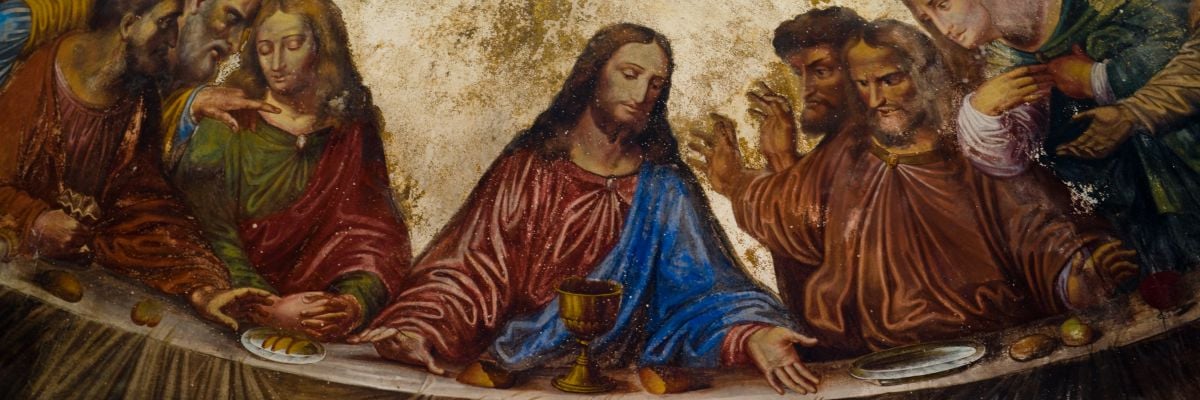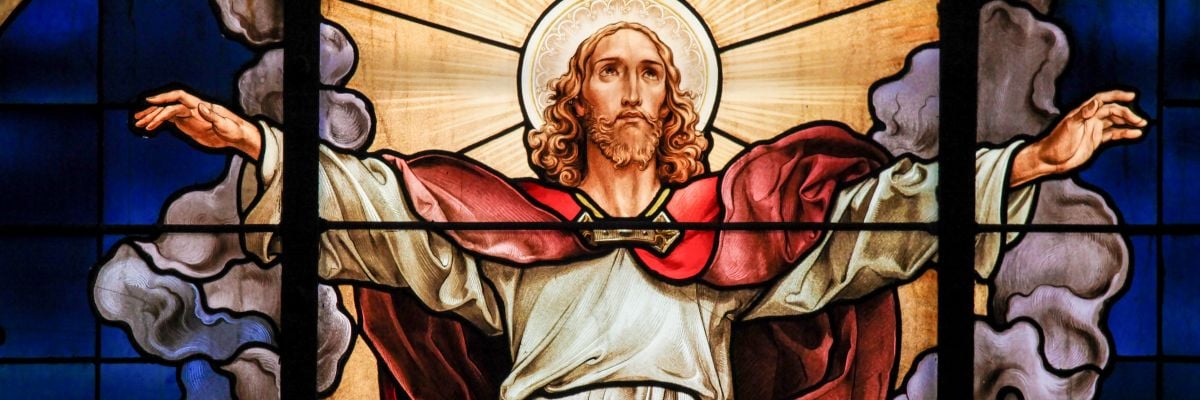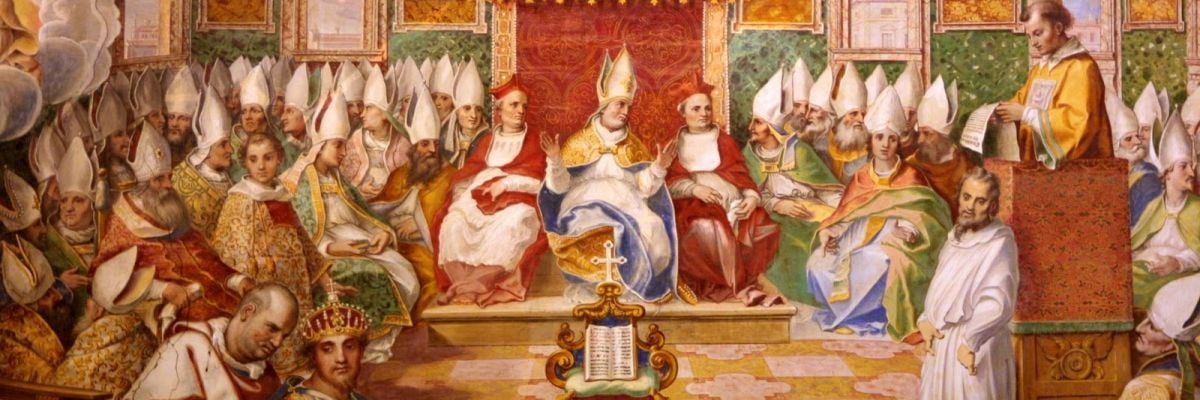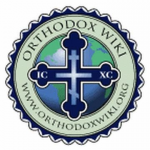Trump Gurl
Credo in Unum Deum
My Church has Bishops, Priests, and Deacons
The Church of the Bible has Bishops, Priests, and Deacons
Does your sect have Bishops, Priests, and Deacons?
Bishops (episcopoi) have the care of multiple congregations and appoint, ordain, and discipline priests and deacons. They sometimes appear to be called “evangelists” in the New Testament. Examples of first-century bishops include Timothy and Titus (1 Tim. 5:19–22; 2 Tim. 4:5; Titus 1:5).
Priests (presbuteroi) are also known as “presbyters” or “elders.” In fact, the English term “priest” is simply a contraction of the Greek word presbuteros. They have the responsibility of teaching, governing, and providing the sacraments in a given congregation (1 Tim. 5:17; Jas. 5:14–15).
Deacons (diakonoi) are the assistants of the bishops and are responsible for teaching and administering certain Church tasks, such as the distribution of food (Acts 6:1–6).
In the apostolic age, the terms for these offices were still somewhat fluid. Sometimes a term would be used in a technical sense as the title for an office, sometimes not. This nontechnical use of the terms even exists today, as when the term “minister” is used in many churches (both Protestant and Catholic) to refer to either ordained ministers (as in “My minister visited him”) or nonordained individuals. (In a Protestant church one might hear “He is a worship minister,” while in a Catholic church one might hear “He is an extraordinary minister of Holy Communion.”)
Thus, in the apostolic age Paul sometimes described himself as a diakonos (“servant” or “minister”; cf. 2 Cor. 3:6, 6:4, 11:23; Eph. 3:7), even though he held an office much higher than that of a deacon, that of apostle.
Similarly, on one occasion Peter described himself as a “fellow elder” (1 Pet. 5:1), even though he, being an apostle, also had a much higher office than that of an ordinary elder.
The term for bishop, episcopos (“overseer”), was also fluid in meaning. Sometimes it designated the overseer of an individual congregation (the priest), sometimes the person who was the overseer of all the congregations in a city or area (the bishop or evangelist), and sometimes simply the highest-ranking clergyman in the local church—who could be an apostle, if one were staying there at the time.
Although the terms “bishop,” “priest,” and “deacon” were somewhat fluid in the apostolic age, by the beginning of the second century they had achieved the fixed form in which they are used today to designate the three offices whose functions are clearly distinct in the New Testament.
The early Church Fathers recognized all three offices and regarded them as essential to the Church’s structure. Especially significant are the letters of Ignatius, Bishop of Antioch, who traveled from his home city to Rome, where he was executed around A.D. 110. On the way he wrote letters to the churches he passed. Each of these churches possessed the same threefold ministry. Without this threefold ministry, Ignatius said, a group cannot be called a church.
Here are examples of what early Christian writers had to say on the subject of bishops, priests, and deacons: LINK

 www.catholic.com
www.catholic.com
The Church of the Bible has Bishops, Priests, and Deacons
Does your sect have Bishops, Priests, and Deacons?
Bishops (episcopoi) have the care of multiple congregations and appoint, ordain, and discipline priests and deacons. They sometimes appear to be called “evangelists” in the New Testament. Examples of first-century bishops include Timothy and Titus (1 Tim. 5:19–22; 2 Tim. 4:5; Titus 1:5).
Priests (presbuteroi) are also known as “presbyters” or “elders.” In fact, the English term “priest” is simply a contraction of the Greek word presbuteros. They have the responsibility of teaching, governing, and providing the sacraments in a given congregation (1 Tim. 5:17; Jas. 5:14–15).
Deacons (diakonoi) are the assistants of the bishops and are responsible for teaching and administering certain Church tasks, such as the distribution of food (Acts 6:1–6).
In the apostolic age, the terms for these offices were still somewhat fluid. Sometimes a term would be used in a technical sense as the title for an office, sometimes not. This nontechnical use of the terms even exists today, as when the term “minister” is used in many churches (both Protestant and Catholic) to refer to either ordained ministers (as in “My minister visited him”) or nonordained individuals. (In a Protestant church one might hear “He is a worship minister,” while in a Catholic church one might hear “He is an extraordinary minister of Holy Communion.”)
Thus, in the apostolic age Paul sometimes described himself as a diakonos (“servant” or “minister”; cf. 2 Cor. 3:6, 6:4, 11:23; Eph. 3:7), even though he held an office much higher than that of a deacon, that of apostle.
Similarly, on one occasion Peter described himself as a “fellow elder” (1 Pet. 5:1), even though he, being an apostle, also had a much higher office than that of an ordinary elder.
The term for bishop, episcopos (“overseer”), was also fluid in meaning. Sometimes it designated the overseer of an individual congregation (the priest), sometimes the person who was the overseer of all the congregations in a city or area (the bishop or evangelist), and sometimes simply the highest-ranking clergyman in the local church—who could be an apostle, if one were staying there at the time.
Although the terms “bishop,” “priest,” and “deacon” were somewhat fluid in the apostolic age, by the beginning of the second century they had achieved the fixed form in which they are used today to designate the three offices whose functions are clearly distinct in the New Testament.
The early Church Fathers recognized all three offices and regarded them as essential to the Church’s structure. Especially significant are the letters of Ignatius, Bishop of Antioch, who traveled from his home city to Rome, where he was executed around A.D. 110. On the way he wrote letters to the churches he passed. Each of these churches possessed the same threefold ministry. Without this threefold ministry, Ignatius said, a group cannot be called a church.
Here are examples of what early Christian writers had to say on the subject of bishops, priests, and deacons: LINK

What the Early Church Believed: Bishop, Priest, and Deacon
The sacrament of holy orders is conferred in three ranks of clergy: bishops, priests, and deacons. Bishops (episcopoi) have the care of multiple congregations a...




